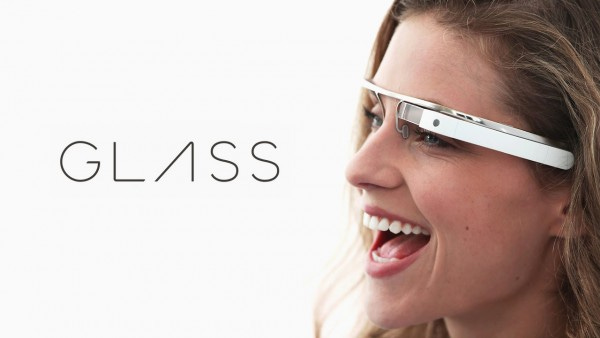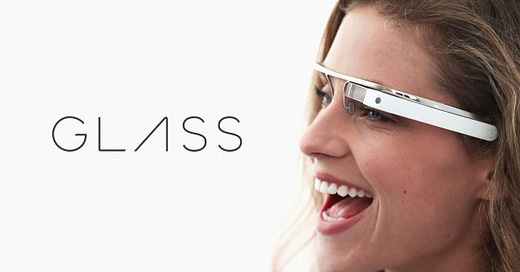Google Glasses: A Blessing Or A Curse?
Click to read the full story: Google Glasses: A Blessing Or A Curse?

Google has set the technology industry on fire with the release of its Google Glasses. These seemingly ordinary looking sunglasses are actually like something out of the 80’s cartoon show, the Jetsons. To sum it up, Google Glasses are basically a computer/camera you can wear on your face. There has been a lot of controversy surrounding the release of Google Glasses because some are singing their praises while others are protesting against the very things these glasses were designed to do.
Privacy rights activists are up in arms at the very existence of Google Glasses. Long before these glasses were even released to the public they were already facing controversy. One of the features of this product is that its built in camera allows people to take pictures and film videos of others anywhere, anytime and completely without their knowledge or permission. There have been numerous reports of people simply wearing these glasses in public and other people confronting them about it.
Certain businesses throughout the country had placed a ban on Google Glasses being used on their premises before the glasses were even released. Those who oppose this product most often do so, on the grounds that wearing them is an invasive type of surveillance. One of the concerns many individuals have expressed about these glasses are that they may be using them without even realizing they are. What people don’t realize when it comes to Google Glasses is that they can only record when they are specifically set to. Having the glasses set so that they can record can drain the device’s battery within one hour, making allowing them to record at all times extremely impractical. And the truth is that when the glasses are recording there is a light that indicates the device is in record mode. This somewhat debunks the myth that Google Glasses can be used to film people without their knowledge. Both casinos and movie theaters have or are ready to ban the use of Google Glasses from their properties. Since the property belongs to the businesses in question they have every right to tell their patrons that Google Glasses cannot be used in the establishment and glass users have no legal recourse.
One of the other concerns surrounding Google Glasses is that any information captured on them can automatically be uploaded to social networks and other public websites. Since the glasses have built in wifi it is easy for users’ glasses to connect to their iPhones or Android phones.
Among the latest concerns regarding Google Glasses and privacy is that the device has the ability to capture passwords that people enter into their tablets or smartphones. The video capturing devices included in Google Glasses can capture private information like passwords from as far as 10 feet away. This can be done because the software in the glasses monitors the shadows that one’s fingers give off when they type in their password. The device’s algorithm uses the pattern the shadows form to determine the numbers and/or letters a person is hitting on their keypad. Google is arguing that people have been able to spy on other people as they enter a PIN at an ATM for years before their product was even thought of, so Google Glasses are harmless at the end of the day.
At one point concerns about the use of Google Glasses were at such a high level that Google temporarily pulled the item from store shelves and online stores carrying them. At this point both the hardware and software is being tweaked by Google so these glasses could get recalled again at virtually any time. Prior to being available to the public Google Glasses were sold to developers and those willing to act as early adopters. Developers and early adopters have loved Google Glasses for their ability to deliver real time driving directions, traffic reports and other useful notifications for drivers. Customized apps can even be configured to work in conjunction with Google Glasses.
Proponents of Google Glasses are excited about the product, so much so that Harvard’s Business School is actually running a class where a case study is done on Google. Much of the talk within this class surrounds the marketing prospects of Google Glasses. The tech geeks of the world are already beginning to develop their own apps and programs that can be used with the device. These are the people who are embracing Google Glasses the most, as enterprises tend to want nothing to do with them.
In addition to Harvard offering a class on Google Glasses, there is talk about incorporating this product into high schools across the country. There are select educators throughout the United States that are serving as beta testers for the Glass Explorer Program Google has been running. So far these glasses are being used to show students lessons from a different perspective. Students are given a pair of Google Glasses to wear and the still images and live footage captured by the device is shown to students so they can view how they are learning. Google Glasses have already come in very handy by providing an online teacher in Switzerland with a way to take students on virtual tours that can offer them an educational experience they would never be exposed to otherwise. Once the teacher had completed the educational virtual tours he continued to use Google Glasses to film videos instructing students on math and science subjects. Other teachers have used them to broadcast lectures and demonstrations on Google+ allowing students all over the world to be exposed to a new way of learning.
As the popularity of Google Glasses continues marketing experts are anticipating that by 2019 250 million units of Google Glasses will have been shipped to interested consumers. This is dependent upon Google Glasses taking off the same way that smartphones did when they first hit the market, though many experts feel that this is a quite likely scenario.
The post Google Glasses: A Blessing Or A Curse? appeared first on Movie TV Tech Geeks News By: Julie Wein


